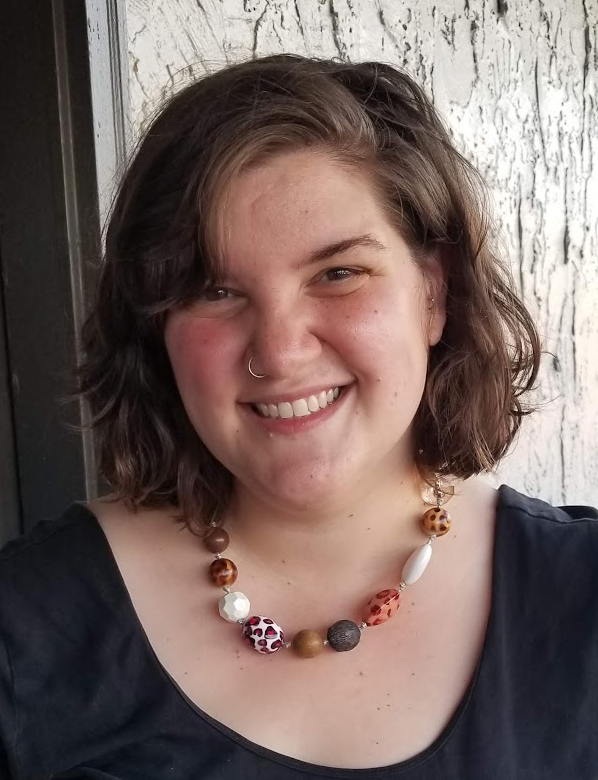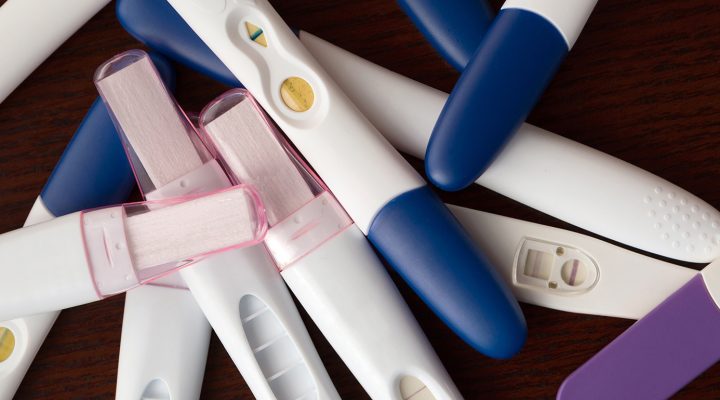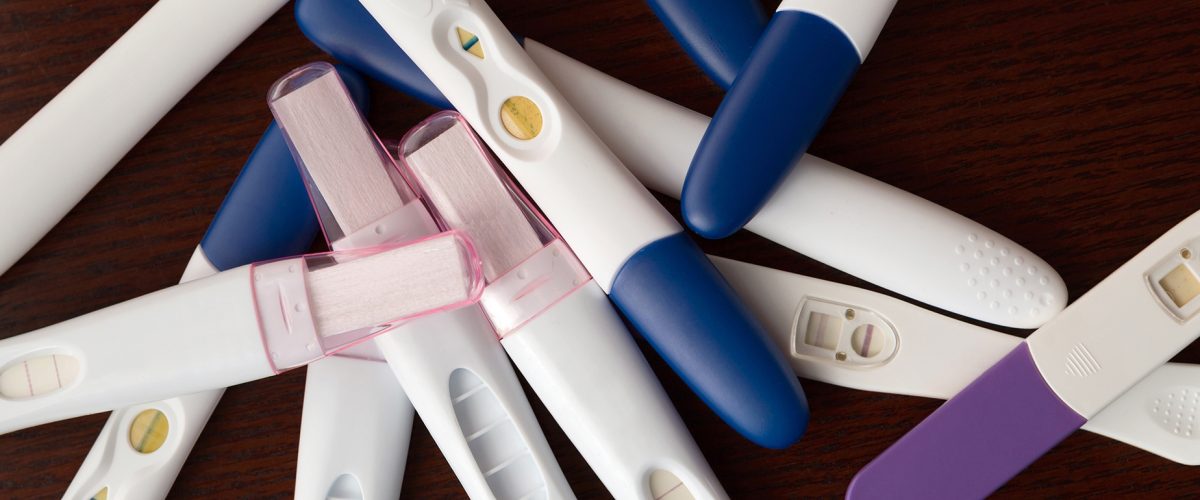I’m not sure who started the phrase, “Sticks and stones may break my bones, but words will never hurt me,” but I’d like a word with them.
Most of us who have been through the experience of middle school know words absolutely can hurt. Sometimes people mean to hurt us with words, sometimes they don’t. In either case, there was a four-year period in my life when there was no sentence that hurt quite as much as, “So, when are you guys going to have a baby?”

Carlisle Davidhizar
It’s a phrase you hear often when you’re a young, married, twenty-something, Christian woman. I want to be clear about this. I don’t think people mean any harm when they ask this question. Most folks, especially church folks, assume young people’s lives go in a particular order. We grow up, maybe go away to college, meet someone we think God has called us to spend our lives with and have a couple of kids. It’s a pattern for a reason. It was my plan for all of my high school and college years.
If you close your eyes and picture an eager youth group kid from the late 1990s and early 2000s, the picture you have in your head is probably pretty close to teenaged me. I loved church as a kid. I was a GA, an Acteen, a faithful youth group member and an alto in the choir. If there was a way to be involved in the church as a teenager, I found it. I played by the rules.
I did things the right way — the way the adults in my life told me would lead to a closer relationship with God, good fruit and a happy family life. I earned every badge, attended every meeting, signed the True Love Waits pledge and wore the promise ring. I married the first boy I kissed in the snow-white dress and was more than ready to buy a house close to the church and settle down to raise all the babies I was sure were on the way soon.
And then the babies didn’t come, and we were crushed. The doctor told me I had a medical condition called Polycystic Ovarian Syndrome that would make it nearly impossible for me to get pregnant. If we ever somehow managed it, the likelihood of carrying a healthy baby to term was small.
In the interest of full disclosure and at the risk of sounding crude, I asked the God of the universe what in the hell he was thinking. Why would God create women to bear, birth and raise children and then make me unable? Why would God provide a slew of adults who had promised me for my whole life that I was called to be a wife and mother, and that if I followed these rules, I would be fulfilled, and then make my stupid body without the ability to do those things?
I felt like someone had pulled the rug out from under me.
“It was crying-on-the-bathroom-floor-with-34-negative-pregnancy-tests hard.”
It was hard. It was crying-on-the-bathroom-floor-with-34-negative-pregnancy-tests hard. It also ended up being the start of a deconstruction and reconstruction of faith that led me to accept a call to ministry I’d been fighting for years, apply to seminary and accept a position as the associate pastor for families and community at my current church. I don’t know that I would have ended up here without that process. And I definitely know none of those 34 negative tests would have been the smiling, messy, wild now 3-year-old boy who came as a complete surprise after we’d already given up.
Things are good now. I feel like God walked with our family on a journey that was equal parts heartbreaking and beautiful, and we’ve landed someplace good. But the thing I want the rest of the church to know is there are extremely helpful ways and wildly unhelpful ways to be in relationship with couples struggling with infertility. I certainly can’t speak for all infertile people everywhere, but here are a few things I’ve learned through this experience.
First, as much as it goes against our instincts, and as much as we might mean well, it is time for us to consider not asking all young couples when they’re going to have children. We just have no idea what they’re facing. Maybe they do want children but feel too young, or are having a hard time paying bills. Maybe they have medical conditions that would make pregnancy dangerous. Maybe they’ve been trying and haven’t shared that. Maybe they just experienced a miscarriage or pregnancy loss we didn’t know about. Maybe they just don’t feel equipped to be parents and never want kids.
“Peoples’ reproductive timelines are their own until they choose to share them with us.”
Whatever the reason, peoples’ reproductive timelines are their own until they choose to share them with us. I’ve started asking people if they have children and then absolutely dropping it if their answer is no. Sometimes they offer more, and sometimes they don’t. Either is fine.
Second, if someone shares they’re struggling with infertility, the kindest thing to do is listen rather than offer advice or coffee mug platitudes. I’m someone who believes God’s timing is different than my own. I’m someone who believes in the power of prayer. Both those things were true, and it also felt like taking a punch to the gut to hear them so regularly.
Am I not praying hard enough? What do I need to do to be “ready?” How long do I have to be in this kind of pain before God answers me? Sometimes the things that come to our lips easily are not the most helpful things. Instead, I wonder if we can commit to being with people who are hurting. I wonder if we can express our sympathy for their pain and not rush to have something positive to say. I wonder how we can make people feel like they are a vital, active part of God’s story with or without children.
Third, I would love to see churches build thriving ministries that make space for all kinds of families. The kingdom and the church are big enough for single adults of any age, childless married couples, young families, transitional families, blended families and everything in between.
I understand there can be something vital about building friendship with people who are in the same stage of life. That’s true. It’s also true that a young mom and a widow whose children live far away might form an unbreakable bond. A couple without children can covenant to love and be loved by other types of families without feeling like they have to look exactly like them. Sunday school classes or small groups can be made up of all types of people from all walks of life. There is no particular age, marital status or parental status a person needs to hit before they can be an active, vital member of a church.
This last thing is a small one, but I still think it’s really important.
“The church can be a welcoming place for people struggling with infertility.”
Fourth, I wish we could think through kind and inclusive ways to handle Mother’s Day and Father’s Day in the church. That’s not to say we shouldn’t recognize them at all, but there are a lot of people who have lost children, who have difficult parental relationships, who desperately want children and who have parents who have passed away recently. I’m trying hard to think through how we honor our parents without devaluing people who aren’t parents. I don’t know if there’s a perfect answer for this, but it’s something we can commit to thinking through carefully.
The church can be a welcoming place for people struggling with infertility. My husband and I felt that kind of love and support when we were locked in our own infertility battle. It’s just as easy for people to be insensitive and dismissive about something they maybe don’t understand very well.
In either case, I know God holds those who are hurting close to God’s heart. We, the church as God’s people, can be thoughtful and kind in our interactions and our community planning. We can make space for people who are experiencing this kind of hurt. We can covenant to helping them carry their burdens, and to value and accept them right where they are.
Carlisle Davidhizar is a graduate of George W. Truett Theological Seminary and serves as associate pastor for families and community at May Memorial Baptist Church in Powhatan, Va.
Related articles:
Infertility and Roe v. Wade | Opinion by Anonymous
5 ways the church doesn’t understand those struggling to be mothers | Opinion by Elizabeth Hagan
Natalie Grant and Charlotte Gambill are daring to be vulnerable leaders


